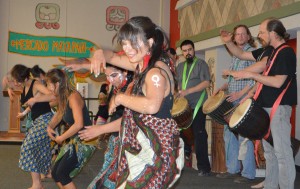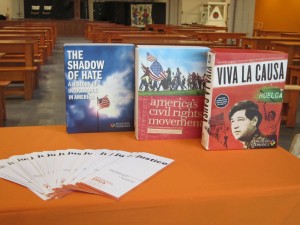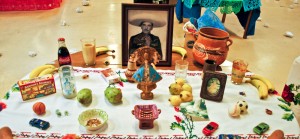La Mujer Obrera celebra Día Internacional de la Mujer
|
EL PASO – En El Día Internacional de la Mujer se celebra la lucha de la mujer en pie por la igualdad con el hombre. Este año La Mujer Obrera se vistió de fiesta para conmemorar a las miles de mujeres inmigrantes y trabajadoras del país. “Esta es una lucha de más de 100 años que llevamos para defender nuestros derechos en el empleo,” dijo Lorena Andrade, directora ejecutiva de La Mujer Obrera. La Mujer Obrera es una organización no lucrativa creada hace más de 30 años, cuyo liderazgo esta conformado por mujeres. “Esta organización fue creada para apoyar a todas aquellas mujeres obreras con sus derechos, como aquellas que perdieron la vida en aquel terrible incendio,” agregó Andrade.


